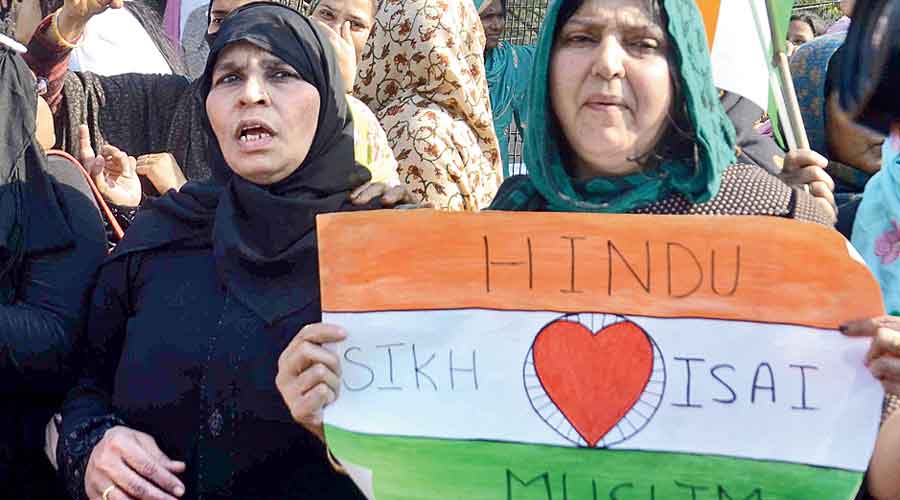Religious freedom and related human rights in India are under ongoing threat, the US Commission for International Religious Freedom alleged on Tuesday in an unusual year-end update of the status of its assessment of religious freedom in the country.
India has previously rejected the USCIRF's observations, terming them as "biased and inaccurate".
The US Commission on International Religious Freedom (USCIRF) is a Congressional-appointed body.
Its recommendations are, however, not mandatory to be implemented by the US State Department.
In its 2022 Annual Report early this year USCIRF recommended that the US Department of State designate India as a "country of particular concern" for engaging in or tolerating systematic, ongoing, and egregious religious freedom violations, as set forth by the International Religious Freedom Act.
The US State Department has refused to incorporate the commission's recommendations so far.
Reiterating its recommendations of early this year, USCIRF argued that such a designation would reinforce the United States' concern regarding the conditions discussed in this country update and would encourage the Indian government to diverge from policies that violate religious freedom and promote communal divides.
In its six-page country update report on India, USCIRF has published its map three times.
Two of the maps are distorted and do not reflect a true geographical map of India.The report said in 2022, religious freedom conditions in India remained poor.During the year, the Indian government at the national, state, and local levels continued to promote and enforce policies, including laws targeting religious conversion, interfaith relationships, and cow slaughter, that negatively affect Muslims, Christians, Sikhs, Dalits and Adivasis.
The national government also continued to suppress critical voices particularly religious minorities and those advocating on their behalf including through surveillance, harassment, demolition of property, arbitrary travel bans, and detention under the Unlawful Activities Prevention Act (UAPA) and by targeting nongovernmental organisations (NGOs) under the Financial Contribution (Regulation) Act (FCRA), the report said.
The pilot implementation of the proposed National Register of Citizens (NRC) in the state of Assam continued to exacerbate fears of losing citizenship among Muslims, who lack protection under the 2019 Citizenship (Amendment) Act (CAA), it said.
In July this year, the Ministry of External Affairs, responding to the USCIRF's report said, "We have seen the biased and inaccurate comments on India by the US Commission on International Religious Freedom (USCIRF)."
"These comments reflect a severe lack of understanding of India and its constitutional framework, its plurality and its democratic ethos. Regrettably, USCIRF continues to misrepresent facts time and again in its statements and reports in pursuance of its motivated agenda. Such actions only serve to strengthen concerns about the credibility and objectivity of the organisation," the spokesperson of MEA said in New Delhi.











